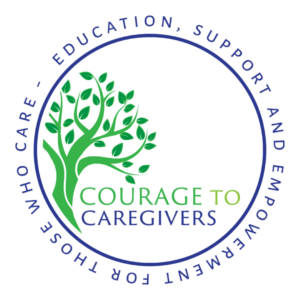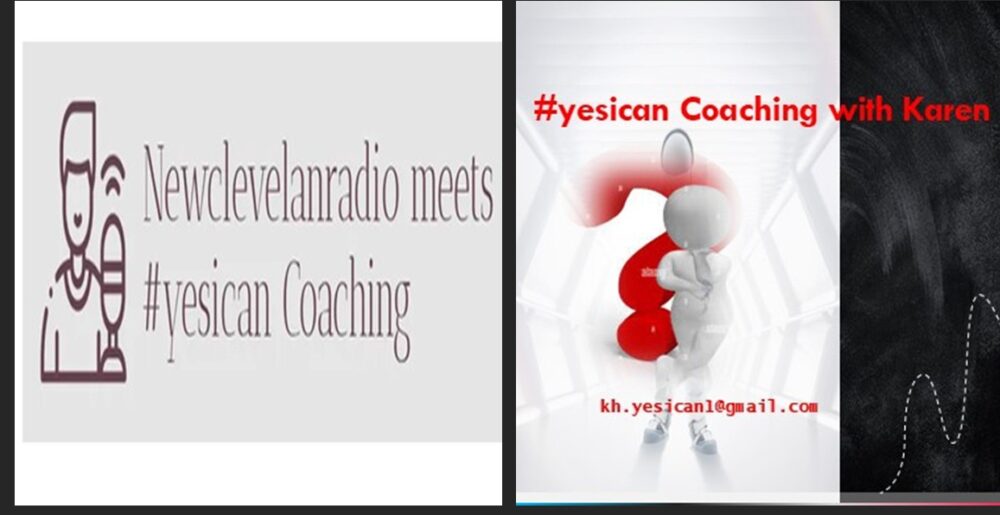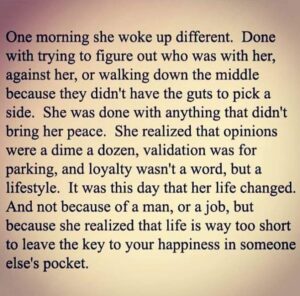Sharing Thoughts
now browsing by category
Courage to Caregivers_Kristi Horner 11/23/20
The second year of Courage to Caregivers’ programming has been one of the most challenging and most fulfilling I can remember.
The impact of the COVID-19 crisis can’t be understated, not only for our caregivers but for our staff as well. Without hesitation, I can say that the uncertainty and fear amidst COVID-19 have increased the request for services to support mental illness caregivers exponentially.
Now, more than ever, it is essential to connect and support caregivers. Before the pandemic, one in five Americans were living with mental illness. Now, the cases have increased by anywhere from two to four times. More than 34% of Americans say they now live with anxiety or depression. How does that impact caregivers? The stress of caregiving is literally taking an average of a decade off life expectancy.
Courage to Caregivers is here to help.
Our goal is always to be in the caregiver burnout prevention business. How have we responded to COVID?
- In March 2020, we moved all of our programs to a virtual platform. We are now serving more caregivers than ever!
- We’ve added a third day to our service offerings, supporting caregivers no matter where they live, including Pennsylvania, New York, South Carolina, New Jersey, Utah, Colorado, Texas, California and Delaware.
- We saw a decrease in the stress of caregiving in our one-year pilot of our Breathing Meditation program by 48% on average, and a 36% reduction of stress in our Support Groups.
As we push toward the end of the year, we have a few organizational milestones we are excited to report. Earlier this month, we had a Summit for professional and family caregivers, called “Caring for the Caregiver: Illuminating HOPE in Uncertain Times with a Focus on Connectedness, Self-Care and Empowerment.” Also this month, we kicked off our first fundraiser, called “Illumination! 2020,” encouraging everyone who is involved with Courage to Caregivers — volunteers, staff, and donors — to be Illuminators in their communities. If you’re interested in joining us, please contact us via our website.
Why have we gone to such lengths to continue our programs? Because we KNOW they work:
Stephanie, who lives in South Carolina and is launching her own business, talks to her peer support volunteer on Mondays, attends breathing meditation and a support group on Wednesdays, and then looks forward to receiving her weekly email on Thursdays. “I have more than one avenue for support. While these programs are all new, it’s nice to know others have similar struggles.”
Our programs also help people like Sally every single day:
“COVID has been a challenge — there’s more to fuel my loved one’s anxiety that was already there… My direct caregiving has increased. It’s been hard to find any programs for my loved ones or at-home caregivers during this time. The burden falls on me. I work full-time and am a full-time caregiver, therapist, cook and maid.
I look forward to the Courage to Caregivers programs every week. Getting together with others with similar stories to mine helps with my ability to cope. We’re all in this together! We share ideas. There’s not a single time I don’t take away something that I use later.”
Our goal is to empower caregivers with the tools they need so they can provide support without burnout. Our solutions include One-to-One Caregiver Peer Support, Breathing Meditation classes and Support Groups.
But we can’t continue to do this critical work without you.
Help me celebrate the important role that caregivers play, during National Caregivers Month in November, by committing to support Courage to Caregivers now!
Supporting our programs is easy. All you need to do is visit our website and donate there (no fees).
And, if you have more questions about Courage to Caregivers, I’d be more than happy to discuss our programs, program sponsorships or the services that we offer at your convenience. You can email me. I will respond to you personally.
Thanks again for the way YOU illuminate HOPE for caregivers everywhere!
Caring TOGETHER,

Kristi Horner
Founder and Executive Director
Courage to Caregivers
Courage to Caregivers _ Kristi Horner
The best way to find yourself is to lose yourself in the service of others.” —Mahatma Gandhi
We really have three topics this week – volunteering, mentorship, and saying no – but they’re all wrapped up in the overall idea of giving you.
According to HelpGuide, volunteering can “reduce stress, combat depression, keep you mentally stimulated, and provide a sense of purpose. While it’s true that the more you volunteer, the more benefits you’ll experience, volunteering doesn’t have to involve a long-term commitment or take a huge amount of time out of your busy day. Giving in even simple ways can help those in need and improve your health and happiness.”
One specific way we can give of ourselves is through mentorship. This is especially true for caregivers. While others in our lives may express compassion and sympathy, only someone who has walked in a caregiver’s shoes can truly understand the feelings, frustrations, worries, and logistical concerns of caregiving. At Courage to Caregivers, our Support Groups and One-to-One Caregiver Peer Support programs serve as connections between caregivers – those who want to be mentors, and those who need mentors.
As we make choices about volunteering and mentorship, however, it’s important to remember that we all need to say “no” sometimes. By saying “no,” we are able to place boundaries on our time, energy, and space. Failure to do so can leave us feeling overburdened and overcommitted … and I’m speaking from experience here. If you need help with this, and most of us do, here are 14 ways that you can say “no.”
Another way to look at it is that knowing when to say “no” also helps you know when to say “yes.” To get to your best “yes” … to give the best of YOU to others and to yourself … start by deciding what you want to learn and what you want to share.
Giving of ourselves benefits others, and it can be a powerful form of self-care, too. When you give, you also gain. When you focus on the needs of others and support your community, you can find a new sense of purpose. When you serve others and recognize their worth as human beings, you can improve your own life experience and outlook. When you give in ways that aren’t related to your role as caregiver, you can discover more about your own interests and what makes YOU unique.

Kristi Horner
Founder and Executive Director
Courage to Caregivers
A Message From Courage to Caregivers

Design Your Downtime
10/30/20
As life continues, celebrations happen, curveballs are thrown, and general life develops, it can be hard to remember you have interests outside of work and family. Your outside interests often have a positive effect on your work and family life. This is all the more reason to work on designing your downtime. Designing your downtime means not only doing what you love purely because you love it but also carving out the time to do it. This is not always easy. Maybe the best way to think about this is something our summer intern Maximilian Lauster said. He explained that when he gets stressed or overwhelmed, the best thing for him to do is completely forget about it, drown out the world for a little while, and then come back. Max does this by playing chess or listening to music, but you can do it however you want to. No matter what form it takes, designing your downtime is essential to life and essential to your happiness. It’s a work in progress – yet, my guess is that YOU are, too! AND you deserve it.
Reflections – My Mother 2016
 As it nears the end of the afternoon on this beautiful Friday, September 25th, I find myself thinking of where I was just four short years ago. On August 2, 2016, when I got the call my mother had a stroke, the situation she was found in by the caregivers at her independent living facility, led me to believe that by the time I got to her side in Detroit, I might not have the opportunity to say good-bye. Actually, I wanted to say more than good-bye. I wanted to ensure she knew I loved her. The ride from Cleveland to West Bloomfield, Michigan took forever on that beautiful summer day. Construction backed us up in numerous spots in Ohio, Michigan and within miles from the hospital, we were hit from behind causing yet another delay. Oy-Vay.
As it nears the end of the afternoon on this beautiful Friday, September 25th, I find myself thinking of where I was just four short years ago. On August 2, 2016, when I got the call my mother had a stroke, the situation she was found in by the caregivers at her independent living facility, led me to believe that by the time I got to her side in Detroit, I might not have the opportunity to say good-bye. Actually, I wanted to say more than good-bye. I wanted to ensure she knew I loved her. The ride from Cleveland to West Bloomfield, Michigan took forever on that beautiful summer day. Construction backed us up in numerous spots in Ohio, Michigan and within miles from the hospital, we were hit from behind causing yet another delay. Oy-Vay.was a seamstress, she made dolls, and knit caps for newborns
Courage to Caregivers – Kristi Horner
We have a lot of resources to share this week. First, it’s National Suicide Prevention Week, September 6-12, and the American Foundation for Suicide Prevention reminds us that you don’t have to be a mental health professional to make a difference.
September is also National Preparedness Month, and here’s an awesome resource to help you plan for anything that might come your way. And it’s National Self-Care Awareness Month which, of course, we observe year-round!
Our self-care topic this week is decluttering your space, and probably the most famous expert on this topic is Marie Kondo, whose KonMari method is focused on how to make your home a more calm and relaxing space. With so many of us now working or learning from home, we could all use a little less stress and a little more peace and calm. Here are some of her top tips:
- Tame the clutter.
- Assign a place for everything.
- Bring the outside in.
- Purify your home.
- Turn up the cozy.
- Make tidying fun.
And here’s a checklist to get you started.
However, like many things about self-care, decluttering can be hard, and it’s easy to feel overwhelmed. So, if you’re like me, you might want to start small, maybe committing 30 minutes a day. Don’t try to do the entire house in one day – go room to room, closet to closet, drawer to drawer.
One of the benefits of decluttering is that it feels great to take control of something you can control, especially in these stressful and complicated times. The physical space in your home is one area where you are generally free to make the changes you want and adapt the environment to best meet your needs.
And as we declutter our physical space, we also need to consider decluttering our minds. When I think about this, I am reminded of when our daughter was little, and she had a hard time falling asleep at night. She would say, “Mommy, I have so many thoughts in my head – I can’t sleep!” So, we had the idea to keep a journal next to her bed so she could “empty” all those thoughts from her mind in order to fall asleep. It worked perfectly! Maybe journaling can help you declutter your mind, too.
Meditation also can help. Actually, I think about it as the antidote to a cluttered mind. Guided meditation has helped me, and I may be biased, but I think our Courage To Caregivers leaders are the best! Consider joining us on a Monday, Tuesday, or Wednesday evening, or consider subscribing to our YouTube channel. Our Breathing Meditation program is designed just for this – to declutter your mind, heart, and soul!

Kristi Horner
Founder and Executive Director
Courage to Caregivers
#VOTEBLUE4YOU – Amy Ferris (THANKYOU!)
The cult of trump is destroying and killing this Country.
Vote him the fuck out.
Focus on Management
It’s a new month with a new theme, and we have lots to share as we focus on management as it relates to caregivers. This week, we’ll focus on planning for the future as well as the resources we have available to help us. We’ll also keep in mind that September is National Suicide Prevention Awareness Month – an important month for all of us.
Here’s a resource from WRAP – Wellness Recovery Action Plan – that combines all of those themes. Utilizing the WRAP for Life process for suicide prevention is an invaluable tool for caregivers and their loved ones. What I love about this process is that it involves your loved one directly, including taking ownership of their future planning. It includes resources for daily planning, a wellness toolbox, and crisis planning.
Management is an essential but often neglected topic for caregivers. We have a lot of things thrown our way, and it’s often difficult to keep up. Planning for the future, allocating resources, decluttering your space, time management, and determining who is on your professional team are all ways we can manage and maintain control.
Whether you’re helping your loved one on a sporadic basis or with more consistent care, providing primary emotional and financial support or occasional assistance, or co-caregiving with a partner, it may be concerning to think about your loved one’s future without your presence. Caregivers also can feel the impact of depleting their own financial, emotional, and mental resources to care for a loved one.
Planning can help reduce this stress, and it’s a key part of self-care. When you feel prepared, you feel less anxious.
But the planning process itself can also make us feel anxious. It may be hard to have a conversation with your loved one about the future. But remember our tips from two weeks on how to have difficult but necessary conversations? You’ve GOT this.
And as you plan, consider all of the resources you can draw upon to help you function effectively. These include tangible resources, such as people, places, or things that help us as caregivers or make life easier for our loved ones. They also include intangible resources – such as empathy, flexibility, support, and hope – expressions of goodwill that help make our days a little easier. Without a doubt, my go-to intangible resource is HOPE.
Finally, here’s an outstanding resource on caregiver management from AARP Foundation: “Prepare to Care – A Planning Guide for Families.” It’s a helpful guide that applies to caregivers of all kinds.
Setting goals for management and planning for the future can seem daunting at first, but they are necessary for self-care. It might be helpful to start small. Baby steps forward ARE steps in the right direction!

Kristi Horner
Founder and Executive Director
Courage to Caregivers
changing the subject and having hard conversations with Kristi Horner
Our topic this week is really two related topics: changing the subject and having hard conversations.
Every one of us has a story. We own that story, and part of ownership is deciding when to talk about it and when to change the subject.
You may recall that our son had a horrible motorcycle accident last year, and for some time afterward, it seemed that everywhere I went, I was greeted by, “I’m so SORRY … How’s your son?” Of course, I realized that people meant well when they asked this, but I felt I was being pitied. I was desperate to get back to talking about something else – and doing something else – instead of constantly being defined by my caregiving role.
Changing the subject in this way was hard for me, but it was also necessary. Sometimes, we just don’t want to talk about our story. And that’s our right because it’s OUR story, and we OWN it.
When people constantly focus on the negatives, it can keep those negative scenarios alive for far too long. In other words, when people do this, they interview for pain. It’s better to focus on the positives by asking uplifting questions, talking about opportunities and possibilities, creating HOPE, and painting a picture of a brighter future that could be. If you know a caregiver, here are some great questions to ask:
- What do you dream about?
- What brings you hope?
- How can I best support you?
- What do you need?
While changing the subject is hard, it can be just as hard to know when to face things head on and have hard conversations when necessary. If we avoid all of the hard conversations, we may just be kicking a can down the street. We risk the conversation blowing up even BIGGER than if we opened the can today.
So, here are some tips for tackling difficult conversations:
- Plan, and be prepared. Go in with the facts, and be specific. Remember, there are always at least two valid positions on any topic.
- Set ground rules – healthy boundaries for healthy conversations. There should be NO judging.
- Communicate directly. Be assertive (not passive or aggressive) in your communication.
- Listen – really listen. Prepare a few open-ended questions in advance to flush out the other person’s point of view.
- Regulate your emotions. Emotions can run high in hard conversations, and being prepared helps you to keep your emotions in check. If your loved one can’t keep their emotions in check, remember that it’s OK to hit pause and take a break.
It takes a lot of courage to have hard conversations as a caregiver. It also takes courage to own our story and to decide when is the right time to talk about it. As Brené Brown says, “When we deny the story, it defines us. When we own the story, we can write a brave new ending.”

Kristi Horner
Founder and Executive Director
Kristi Horner Founder and Executive Director Courage to Caregivers
7/23/20
The current pandemic has brought with it many kinds of losses – including personal, social, financial, and even our sense of “life as we know it.” Any loss can make us feel grief, and that, appropriately, is our topic for this week.
Grieving can be both personal and communal. We’re all navigating this differently and maybe feeling different kinds of personal losses, but we’re also feeling “collective grief.” We have all lost something in the last four months, and because of that, we’re all grieving together. This is hard.
In this article, Lucy Hone of the New Zealand Institute of Wellbeing & Resilience reminds us about the power of resilience. This can include tuning into the good that still remains, hunting out positive emotions, and keeping memories alive through routines and rituals. According to research, Hone says, “participating in rituals returns a feeling of control to the bereaved, and people who do so experience lower levels of grief.”
Elisabeth Kübler–Ross is legendary when it comes to navigating grief and loss. This is one of my most favorite quotes of hers – when you read it insert ANY loss you have experienced – not just a loss of a loved one experienced through death. “The reality is that you will grieve forever. You will not ‘get over’ the loss of a loved one; you will learn to live with it. You will heal and you will rebuild yourself around the loss you have suffered. You will be whole again but you will never be the same. Nor should you be the same nor would you want to.”
Although we may never really “get over” the loss of a loved one – or any significant loss, for that matter – we do find new ways of coping and managing overtime. Regarding this pandemic, I know that not one of us will emerge in the same way or as the same person we were four months ago. But it’s my hope that all of us, and the world around us, will change for the better.
That’s probably why I’ve dusted off all my go-to resources for facing loss during this pandemic. Here’s a list of some of my favorite grief and loss resources.
As a final note, tomorrow is an important day for us. It’s International Self-Care Day, and we’ve decided to celebrate with our very first Day of Giving in honor of our commitment to self-care for caregivers!
We are so proud that Courage to Caregivers has been able to help hundreds of caregivers through our peer support, breathing meditation, and support group programs. And this newsletter reaches hundreds more with weekly inspirational messages and resources.
Thank YOU for supporting our mission to provide hope, support, and courage to caregivers and loved ones of those living with mental illness. We can’t do this important work without YOU.

Kristi Horner
Founder and Executive Director
Courage to Caregivers


 D5 Creation
D5 Creation